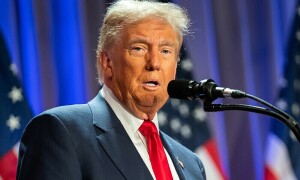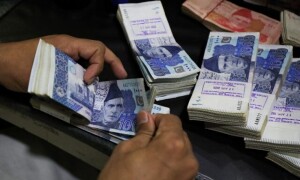 TOKYO: Yields on 10-year benchmark Japanese government bonds slipped to a two-month low on Tuesday as some investors covered their bearish positions after the weekend's election result failed to spark a rise in yields as they had expected.
TOKYO: Yields on 10-year benchmark Japanese government bonds slipped to a two-month low on Tuesday as some investors covered their bearish positions after the weekend's election result failed to spark a rise in yields as they had expected.
The 10-year yield was down 1.5 basis points at 0.770 percent, hitting its lowest since May 14, while the 10-year JGB futures gained 0.17 point to 143.81, the highest in more than two months.
"A lot of the players had expected the yields to go up after the (upper house) election," said Tadashi Matsukawa, head of Japan fixed income at PineBridge Investments. "They are probably just being squeezed out."
Prime Minister Shinzo Abe's ruling bloc, with coalition partner New Komeito Party, won decisively in the upper house election held on Sunday. Abe's government now has control of both the lower and upper houses of parliament, granting him a strong mandate to push for reforms and revive the flagging economy.
Market participants have said some investors might have worried that if Abe's Liberal Democratic Party secured a majority on its own, Tokyo's Nikkei share average would rally hard and hurt JGBs.
On Tuesday, the Japanese government raised its view on the economy for a third straight month in July and said deflation was abating as a result of the expansionary policy mix of monetary easing and generous spending.
The 20-year yield was unchanged at 1.705 percent after earlier ticking up 0.5 basis point to 1.710 percent, while the 30-year yield was steady at 1.825 percent.
"We've heard some of the pension funds are buyers of the 20-year sector. Maybe fresh pension money is flowing into the markets," Matsukawa said. "A lot of banks have sold a lot of the 10-year paper."
"When money comes in, (passive pension funds) will put some of the money into play. They don't speculate on timing," he said, referring to some pension funds' purchase of 20-year JGBs ahead of Thursday's 1.2 trillion yen ($12.1 billion) auction of the same maturities.
The spread between 10- and 20-year yields widened to 93.5 basis points, its highest in four months, while that between the benchmark bond and the 30-year debt rose to 105.5 basis points, hitting a two-month high.






















Comments
Comments are closed.